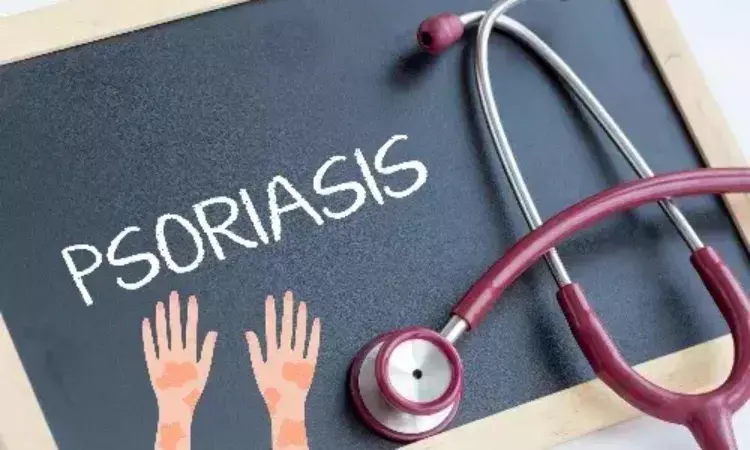- Home
- Medical news & Guidelines
- Anesthesiology
- Cardiology and CTVS
- Critical Care
- Dentistry
- Dermatology
- Diabetes and Endocrinology
- ENT
- Gastroenterology
- Medicine
- Nephrology
- Neurology
- Obstretics-Gynaecology
- Oncology
- Ophthalmology
- Orthopaedics
- Pediatrics-Neonatology
- Psychiatry
- Pulmonology
- Radiology
- Surgery
- Urology
- Laboratory Medicine
- Diet
- Nursing
- Paramedical
- Physiotherapy
- Health news
- Fact Check
- Bone Health Fact Check
- Brain Health Fact Check
- Cancer Related Fact Check
- Child Care Fact Check
- Dental and oral health fact check
- Diabetes and metabolic health fact check
- Diet and Nutrition Fact Check
- Eye and ENT Care Fact Check
- Fitness fact check
- Gut health fact check
- Heart health fact check
- Kidney health fact check
- Medical education fact check
- Men's health fact check
- Respiratory fact check
- Skin and hair care fact check
- Vaccine and Immunization fact check
- Women's health fact check
- AYUSH
- State News
- Andaman and Nicobar Islands
- Andhra Pradesh
- Arunachal Pradesh
- Assam
- Bihar
- Chandigarh
- Chattisgarh
- Dadra and Nagar Haveli
- Daman and Diu
- Delhi
- Goa
- Gujarat
- Haryana
- Himachal Pradesh
- Jammu & Kashmir
- Jharkhand
- Karnataka
- Kerala
- Ladakh
- Lakshadweep
- Madhya Pradesh
- Maharashtra
- Manipur
- Meghalaya
- Mizoram
- Nagaland
- Odisha
- Puducherry
- Punjab
- Rajasthan
- Sikkim
- Tamil Nadu
- Telangana
- Tripura
- Uttar Pradesh
- Uttrakhand
- West Bengal
- Medical Education
- Industry
Study Reveals Genetic Connection Between Cardiovascular Disease and Psoriasis, Paving the Way for New Therapies

UK: A recent Mendelian randomization (MR) study has uncovered significant evidence that genetic predictors of cardiovascular disease are associated with an increased risk of developing psoriasis. The research, published in JAMA Cardiology, highlights a notable connection between these two seemingly distinct conditions, suggesting that shared genetic factors may influence their onset.
"These findings indicate that the biological pathways affecting cardiovascular disease risk are linked to an increased risk of psoriasis, but not to other immune-mediated inflammatory diseases (IMIDs)," the researchers wrote.
Psoriasis, a chronic inflammatory skin disorder, affects millions worldwide and is known for its debilitating symptoms and impact on quality of life. Concurrently, cardiovascular disease remains a leading cause of morbidity and mortality globally.
The epidemiological connection between immune-mediated diseases and cardiovascular disease is frequently ascribed to systemic inflammation. However, the precise direction of causality and the biological mechanisms that link cardiovascular disease with IMIDs remain unclear. Given the strong epidemiological association and the increasing mechanistic evidence, psoriasis is suggested as an ideal model for investigating this relationship.
Against the above background, Ravi Ramessur, the King’s College London, London, United Kingdom, and colleagues aimed to evaluate the bidirectional relationships between genetic predictors of psoriasis and the two primary forms of cardiovascular disease: coronary artery disease (CAD) and stroke. Additionally, they examined the association between genetic predictors of cardiovascular disease and nine other immune-mediated inflammatory diseases.
For this purpose, the researchers conducted a genetic association study utilizing MR, a robust genetic tool that helps differentiate causation from mere associations found in epidemiological studies. This approach aimed to provide supportive evidence for causal relationships between various traits. The study employed two-sample MR analyses using summary-level data from extensive genome-wide association meta-analyses (GWAS) for each trait, focusing on individuals of European descent. The analysis included data related to CAD, stroke, psoriasis, and nine other IMIDs.
The exposures examined included genetic predictors associated with CAD, stroke, psoriasis, and the nine additional IMIDs. The primary outcomes of the study were the associations of genetic predictors of CAD and stroke with the risk of developing psoriasis and other IMIDs. These associations were determined using inverse-variance weighted (IVW) MR estimates.
The study revealed the following findings:
- The study included 181 249 cases and 1 165 690 controls with CAD, 110 182 cases and 1 503 898 controls with stroke, 36 466 cases and 458 078 controls with psoriasis, for a total of approximately 3 400 000 individuals, and nine other IMIDs.
- In contrast to previous assumptions, genetic predictors of psoriasis had no association with CAD or stroke.
- In the reverse direction, genetic predictors of both CAD (MR estimate IVW odds ratio [OR], 1.07) and stroke (IVW OR, 1.22) had risk-increasing associations with psoriasis.
- Adjusting for stroke rendered the associations of genetically predicted CAD with psoriasis risk nonsignificant (and vice versa), suggesting that a shared effect underlying genetic risk for CAD and stroke is associated with increased psoriasis risk.
- There were no risk-increasing associations for genetic predictors of cardiovascular disease with other common IMIDs, including rheumatoid arthritis and inflammatory bowel disease.
"The findings from this MR study suggest that genetic predictors of cardiovascular disease are linked to an elevated risk of psoriasis without any reciprocal effect or association with other immune-mediated diseases. Understanding the mechanisms behind this connection may pave the way for innovative therapeutic strategies for both conditions," the researchers concluded.
Reference:
Ramessur R, Saklatvala J, Budu-Aggrey A, et al. Exploring the Link Between Genetic Predictors of Cardiovascular Disease and Psoriasis. JAMA Cardiol. Published online September 18, 2024. doi:10.1001/jamacardio.2024.2859
Dr Kamal Kant Kohli-MBBS, DTCD- a chest specialist with more than 30 years of practice and a flair for writing clinical articles, Dr Kamal Kant Kohli joined Medical Dialogues as a Chief Editor of Medical News. Besides writing articles, as an editor, he proofreads and verifies all the medical content published on Medical Dialogues including those coming from journals, studies,medical conferences,guidelines etc. Email: drkohli@medicaldialogues.in. Contact no. 011-43720751


